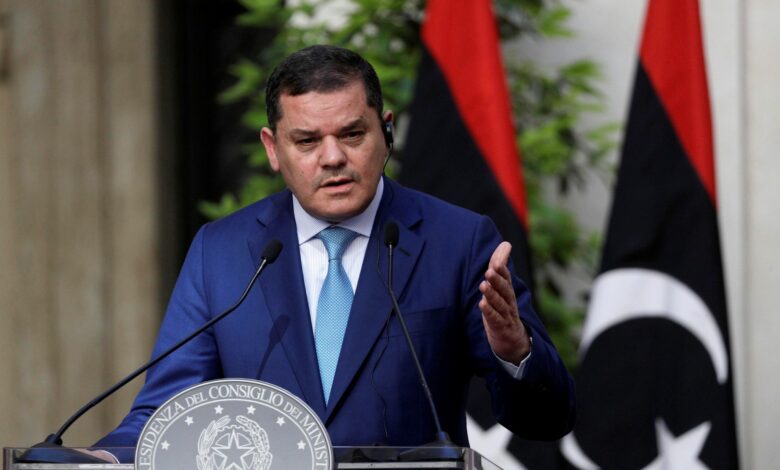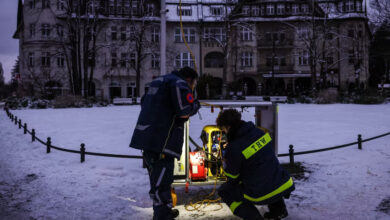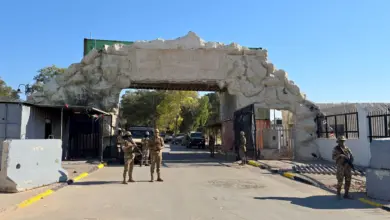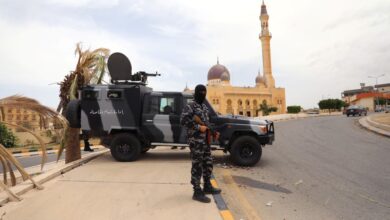
TRIPOLI, June 20 (Reuters) – The head of Libya’s unity government said on Sunday he had reopened the main coast road across the frozen front line, a gesture of progress in the fragile peace process, but eastern forces said the road remained closed.
Prime Minister Abdulhamid Dbeibeh’s move to reopen the road is in line with a ceasefire deal agreed last year as part of efforts to resolve Libya’s decade of chaos and violence.
It comes days before international powers meet in Berlin to discuss the Libya crisis and progress towards unifying the country’s fragmented institutions and holding elections planned for December.
Dbeibeh removed a mound of sand blocking the road at the final checkpoint on the western side of front line, before driving eastwards with his convoytowards Sirte, held by eastern forces.
However, a media unit of Khalifa Haftar’s eastern-based Libyan National Army (LNA) said the road was still closed and there was “no truth to what is rumoured about it reopening”.
Libya, a major North African oil producer, has had little peace or stability since the NATO-backed rising against Muammar Gaddafi in 2011 and a split in 2014 between warring eastern and western factions.
Though the reopening of the road would mark a significant step for the internationally supported peace process, big challenges remain with armed power still held by myriad groups including the forces of eastern commander Khalifa Haftar.
Earlier on Sunday, in a move that underscored his continued military clout, Haftar’s forces announced they had closed the border with Algeria after deploying heavily in the south.
Mohammed, a vegetable truck driver there who did not give his family name, said he wanted to see for himself if it would be possible to make the journey. “I hope the road will reopen today because it is easier, faster and cheaper for us,” he said.
HAFTAR’S CLOUT
The reopening of the coastal highway and other terms of the ceasefire, agreed in September after the collapse of Haftar’s 14-month offensive on Tripoli, were meant to be implemented months ago.
However, while flights have resumed between Tripoli and the eastern city of Benghazi, and some prisoners have been freed, the road remained blocked at the front line.
Western Libyan forces had refused to open it until another ceasefire condition – the removal of powerful foreign mercenaries entrenched around front lines – was carried out.
The ceasefire and the formation of Dbeibeh’s Government of National Unity (GNU) were both agreed through a talks process facilitated by the United Nations and backed by the international community.
The process is intended to result in elections, but neither the U.N. talks participants nor the divided, eastern-based parliament have agreed on a constitutional basis for the vote to go ahead, opening potential challenges to its legitimacy.
Meanwhile, any election would take place in a country where cities and towns remain under the control of armed groups whose own leaders might themselves stand for office.
Along the coast road, the large covered checkpoints and a burned out petrol station underscored the continued tensions despite this year’s political progress.
However, in Misrata, 28-year old civil servant Ali Mohamed al-Mogasbi said he though the reopening of the road would be a good step forward. “But it’s also important to guarantee that all mercenaries should leave,” he added.
Reporting by Reuters Libya newsroom, writing by Angus McDowall, editing by Louise Heavens




